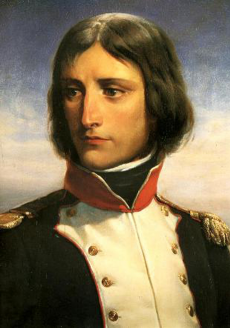
The writing of the Code Napoleon was probably the most significant achievement of Napoleon Bonaparte’s because it created the basis for the laws and values of Europe, America, Japan, Egypt and Canada. It was particularly necessary for France because, after the French Revolution of 1789, French law had become a complete mess. Lawyers, not to mention the people, hardly knew what was legal or illegal anymore, since there were so many confusing and conflicting books on the law. The Napoleonic Code created a single, streamlined system of law, which enshrined the basic tenets of the Revolution.
Napoleon wanted to be remembered not just as a great general like Hannibal, Julius Caesar and Alexander the Great, but as a pioneering law-maker. Starting in 1800 he summoned his councillors (governors) to oversee a revision of the then current Civil Code for it to then be handed over to the Council of State (the equivalent of the House of Commons in Britain) for approval. At the meetings regarding the codes he surprised everyone with his knowledge and depth of insight. He impressed even the sceptics, showing them that he was a leader who could do anything he put his mind to. As Frank McLynn says in his biography of Napoleon, ‘first there was his military talent then his diplomatic skill, next his administrative ability and finally his prowess as a legislator.’
Much of the purpose of the Code Napoleon was to change the highly dog-eat-dog state of things in France, brought about by the revolution. Napoleon wanted to change this by putting family at the heart of social infrastructure. The code was subsequently adopted in many other nations, due to Napoleon’s domination of Europe.
With the code, Napoleon introduced:
- The equality of all before the law.
- An end to feudal rights and duties - which meant that rich nobles could not exploit others by giving them parts of their land to them to live off.
- Inviolability of property - so that people’s houses and objects could not be destroyed by others
- Marriage as a civil not religious act - giving more power to the state and taking it from the church.
- Freedom of conscience and religion.
- Freedom to choose one’s work.
- An absence of privileges for those of nobility and equal opportunity for all citizens - in other words, the destruction of the unequal class system.
- Legal proceedings in public - which is part of the modern principle of freedom of information.
Napoleon also drafted it in a way which was clear and intelligible to the common man so that all the citizens subject to these laws would be able to know their rights as well as the lawyers (at least, so long as they could read); an effective way of making France, and the other nations in which the Code was introduced, freer places for all people.
The purpose of such a unifying code for Napoleon was to take another step towards creating his vision of a united Europe under his control, which ultimately failed when he lost the battle of Waterloo in 1815. However, due to the Code Napoleon’s adoption in so many European countries, he majorly assisted in the formation of the European Union. The Code Napoleon meant these countries already shared the same set of laws and values, thereby making the formation of a political union much easier. Because of this achievement, many historians argue that Napoleon was the founder of modern Europe and therefore a highly significant figure in shaping the world as it is today.
Sources: - Napoleon, by Frank Mclynn
Image: https://commons.wikimedia.org/wiki/File:Napoleon_-_2.jpg

0 Comment:
Be the first one to comment on this article.